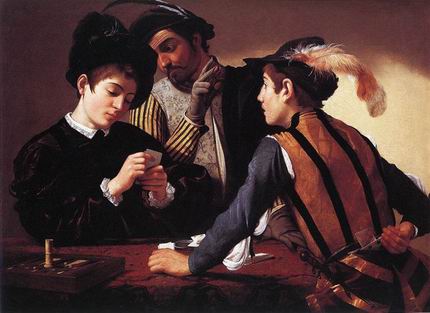
Tuesday, April 27, 2010
Iketeru Please Translate Japanese To English?

Monday, April 26, 2010
How Much Is A Mosin Nagant Rifle
Many people mistake the use of the conditional, using it instead of the subjunctive.
I've had try this very day, on TV. During the trial cook, I heard the chef Gianfranco Vissani stumble upon this type of error, error that is due to the presence of the conjunction * if *.
 So I take this opportunity to do some 'clarity:
So I take this opportunity to do some 'clarity: I wonder if go to the bottom of this story
do not know if I would live a life with you
- As you see, if you * want * the conditional when following a verb that introduces the interrogative sentence or doubt.
I wondered if you were going all the way
In the first case we have the verb interrogative pronoun ARISES followed by * that * + conditional
(this is how this detail - - the main verb) and then that if a where * means *, where * * and which requires the subjunctive (expresses a hypothesis)
 In the second case we have a verb followed by * ASK * if + conditional (past as the past - Remote indicative - the main verb).
In the second case we have a verb followed by * ASK * if + conditional (past as the past - Remote indicative - the main verb). Benedict Conditionals! But what is the hypothetical?
To be clear, if one introduced by a * * (except when preceded by verbs or skeptical questions, we've seen). Simplify, eh.
But there is only one type of Conditionals.
periods hypothetical (to put it simply, if * i *) are of three types:
- Conditionals reality
- period of the hypothetical possibility
- hypothetical period of unreality (or inability)
If (you) study a lot, (You) BE PROMOTED.
And now transform it:
- If you study a lot, you promoted ( practically a certainty : if now studies, and much, you will have the reward and you will be promoted)
- if you study a lot, would promoted ( is a possibility, a probability , you study and you'll see that ...)
- if I had studied a lot, would have been promoted (oh no, here we did not: now the positive assumption belongs to the past, there is nothing to do )
As you see, the conditional is still , but does not follow the * if * , is on the other part of the sentence that apodo (1). After
* if * that expresses a hypothesis - feasible or not - there is the subjunctive.
And when there is the present tense in the second half - quell'apodosi of which we spoke - we always have a target, but future.
or clear all the doubt Hamlet ( conditional conditional or not) there?
___________ (1) "During the hypothetical, the main clause which expresses the consequence of the hypothesis set out in the antecedent (eg apodo: I would be happy ; protasis: if I could ). online Source: Dictionary Sabatini-Coletti .
The image of the cupboard White is taken from the website Fusion Carantini .
Tuesday, April 13, 2010
Why Is Bulma Attracted To Vegeta

This is also a simple dish of peasant tradition. They used it during the spring and autumn when the high humidity of the soil along with the temperature far from rigid, were the ideal conditions for the retrieval of raw material. To find the snails, between the gorges of the walls of cliffs or in tall grass, children were assigned a little 'fun to play with antennas of animals, a bit 'taking it more seriously, could bring home the dinner at no cost, was a godsend to the chronic financial disaster for farmers. Now, unfortunately, hard to find in the wild, because the indiscriminate use of agricultural pesticides and herbicides to nearly decimated. They are still in specialized farms, but not the same size and of course taste the same.
Ingredients for 6:
3 kg of live snails -500 grams of fresh garlic leaves with 2-hot peppers - 300 grams of tomato sauce, extra virgin olive oil -50 g of bacon-salt.
Preparation:
You go looking for snails campaign in September, April and May, and when it has just rained. The snails once collected are put to soak in salted water (to prevent the escape of the shellfish use of plastic buckets with lid). The 'water to soak the snails must be changed at least two or three times a day, and are ready to cook at least two days. After the
dell'espurgazione, during which the snails lose that gelatinous slime they need to crawl, to be washed in cold water several times, then drained and put into pot.
's garlic, with all the code, it should be chopped and blanched. At this point in a pan with olive oil, pancetta and chilli combine the blanched garlic and half the snails. It
Fry and after about 10 minutes you add the tomato puree and salt, leaving it to cook for about another ten minutes. It adds the 'remaining garlic and finish cooking.
Snails fresh garlic are served with appetizers of wood they are taken from the shell.
In combination with a fragrant red, not very structured Aglianico di Taurasi Torella, 2009.
recipes by http://www.tenutamontelaura.it
Friday, April 9, 2010
Iketeru Can Someone Translate This? Please?
First of all What does it mean?
is a complex story of language casts and cheerful confusion. We hope to make ourselves understood. The word comes from the French hood * *. It has nothing to do with the coat our (or rather, once a hood was a hooded cloak), but with games of cards.
only that there is a passive position of * * hood. One who is cards hood, we could say that it is KO, that has not even won a hand. So, who wins every game and concedes nothing to the opponent, makes it, he does hood. Faire hood quelqu'un .
At this point, in Italy, probably in francesissimo 700, take the expression as it is and you do a cast . * Faire hood * becomes * do coat *. But the suit has nothing to do.






